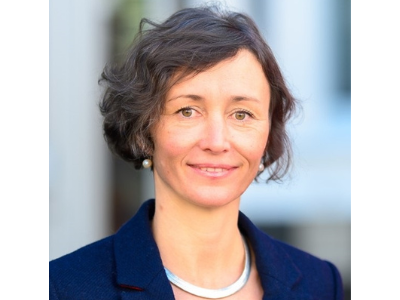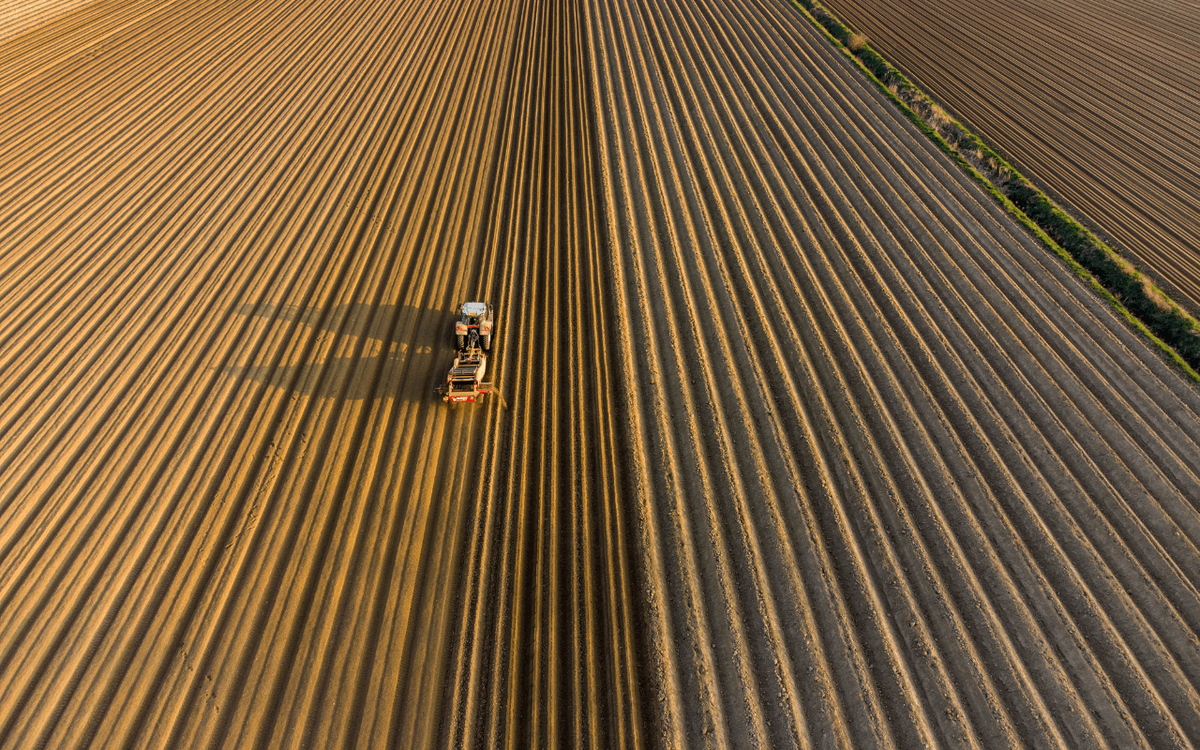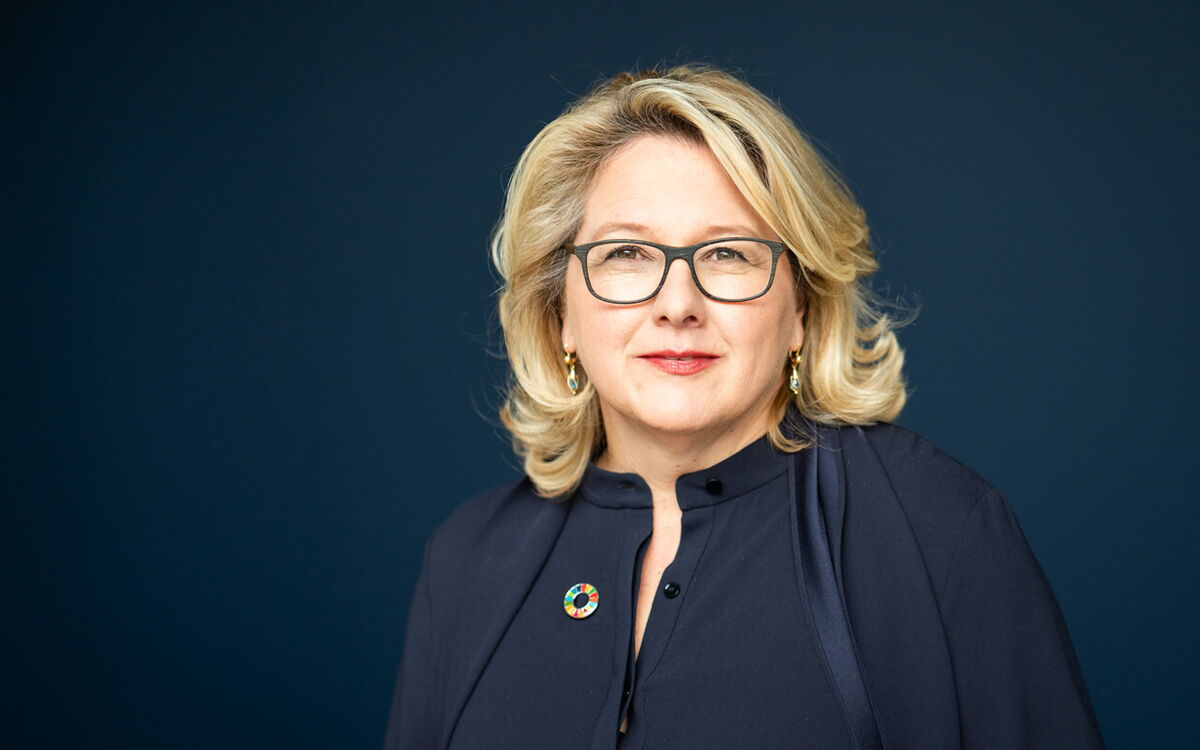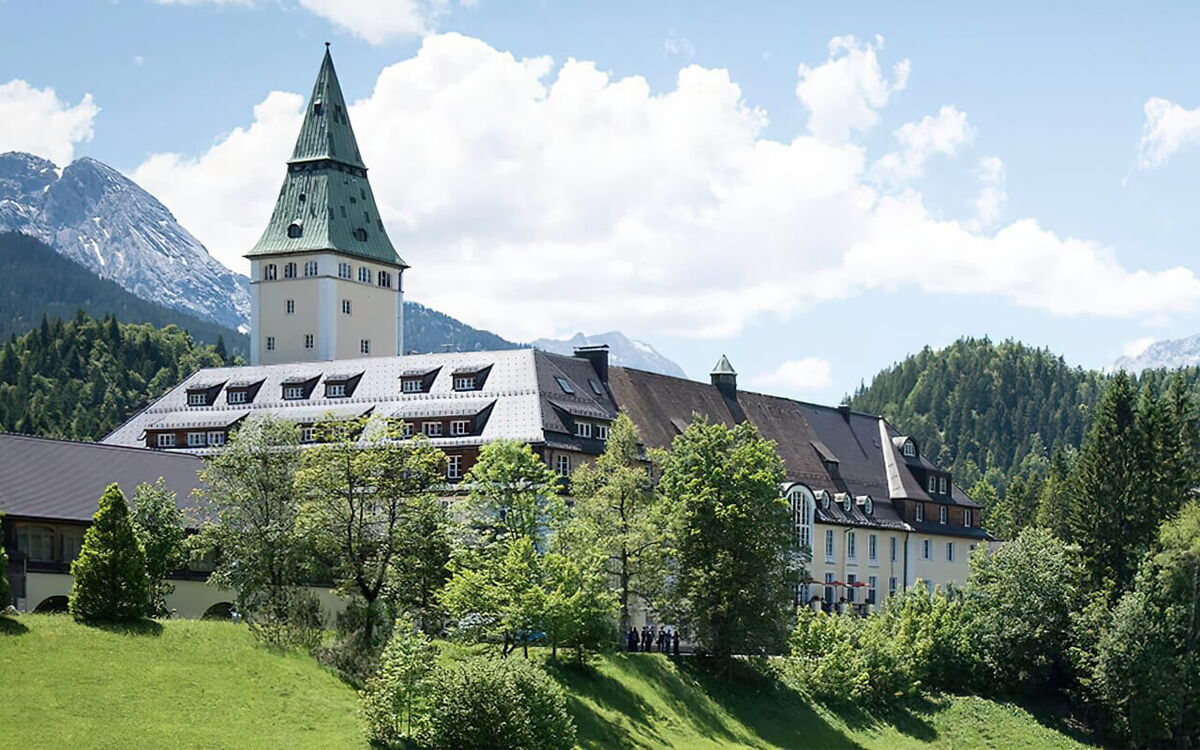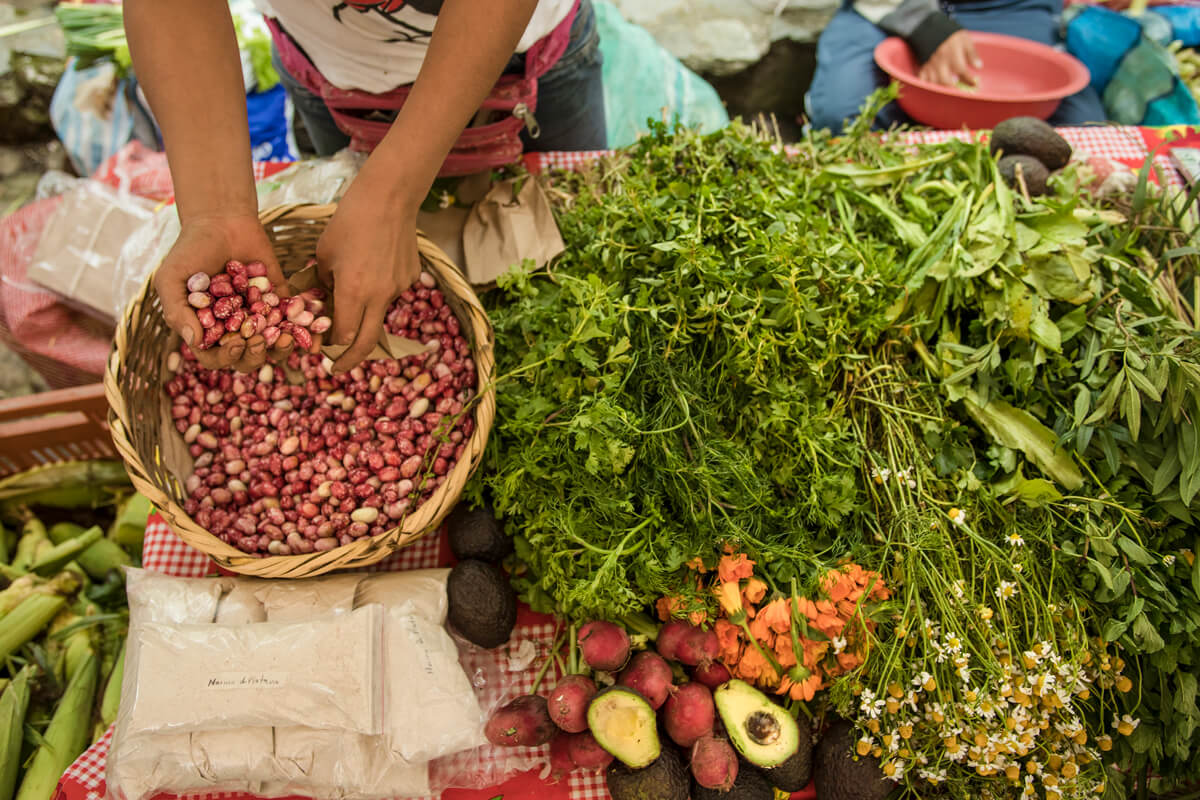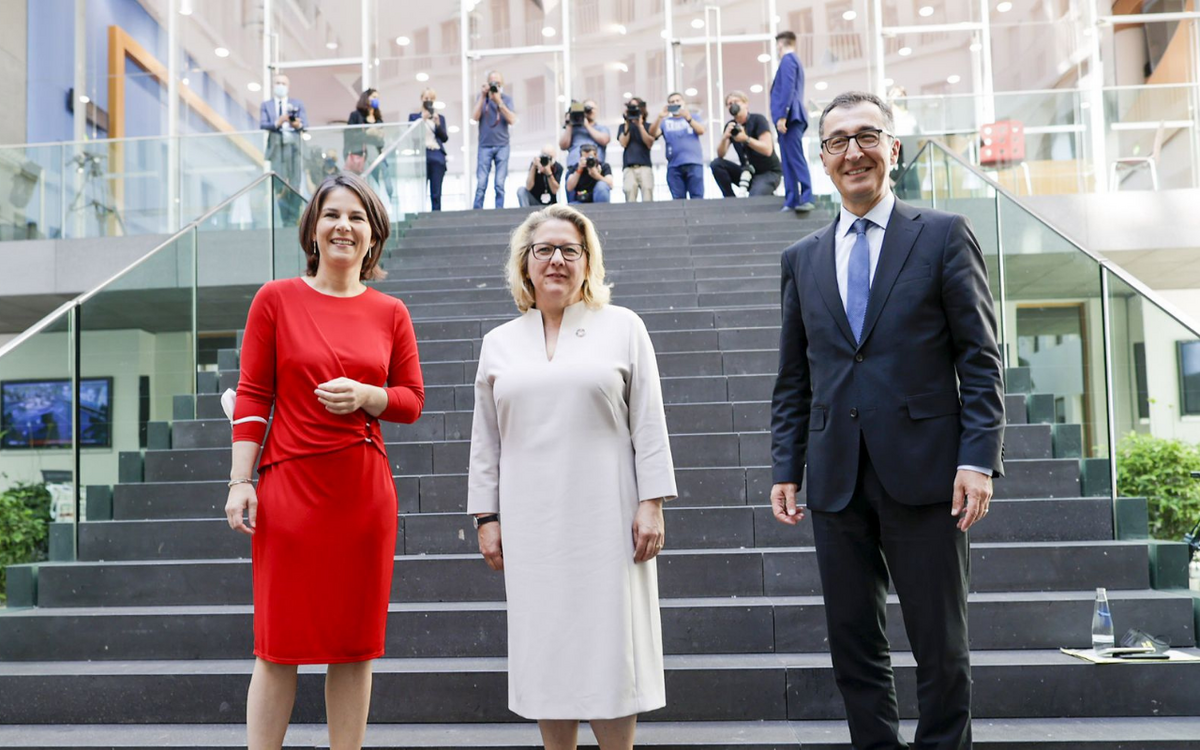‘In every situation there are also opportunities’
Many different crises are being negotiated in Elmau. What does this mean for governmental action? Anna-Katharina Hornidge is co-manager of Think7 – the association of leading think tanks. She also sees the summit as an opportunity to make a big splash. An interview by journalist Jan Rübel.

The current G7 summit is overshadowed by many, rather big crises. Will visions and long-term planning fall by the wayside?
Anna-Katharina Hornidge: These crises are particularly inviting for a grand design. After all, the urgency is growing. Many problem areas mutually reinforce each other and cause subsequent crises. But it is true that our steering capacities are somewhat weakened by COVID-19; furthermore, there are autocratisation processes that have a negative impact on multilateralism...
So, not a good starting position?
Fake news and ‘neo-speak’ complicate the discourse immensely. The issue is therefore twofold: on the one hand, we need a major step forward. On the other hand, we need to identify which screws need to be adjusted to advance medium- to long-term dynamics between the crises. That is the big challenge.
Which areas do you mean specifically?
For example, with regard to Ukraine, it is clear that the social safety nets in the region must be reinforced. Investments are needed to take care of refugees and boost healthcare and education in general. Why is that? These efforts promote social cohesion and resilience in dealing with crises.
Do you see a willingness on the part of the G7 to make such adjustments?
The willingness is there. You can see it in the commitment to make a big impact in the short-term fight against crises such as hunger through the Global Alliance for Food Security. After all, it is a valid attempt to make a major breakthrough. At the same time, there are signs from the G7 that they want to finetune the governance instruments and create a new architecture. Advancing inclusive club formats is a move in the right direction, be it through climate clubs or other issue-specific alliances such as in the healthcare context.
And what about the social, healthcare and education protection systems you described?
They are the true backbones of societies. The G7 is rather reticent about this. It’s position is rightly that this should actually be financed by the countries themselves. It is not acceptable that a country like Indonesia only invests 0.2 per cent of its GDP in the education system; in Nigeria it is 0.1 per cent. A global discourse and the development of global incentives must be used to ensure that countries clean up their tax systems and put themselves in a position to manage taxes transparently and use them strategically – namely for the benefit of future generations.
Are the G7’s hands tied here?
It has to evolve independently in the countries. But the G7 can play an important role in shaping these global discourses.
Is there also an opportunity in the changed global situation?
In every situation there are also opportunities. Now is the time to think about:
With whom we want to collaborate to drive the transformation of our economic and energy systems in a targeted manner? Shining examples could be created now. But the challenges outweigh the opportunities at the moment.
What flagship projects come to mind?
For example, successfully designed Just Transition Partnerships, as in the energy sector between high-income countries and South Africa, India and Indonesia. Interestingly, this project is already highly celebrated even though it does not exist yet – but let’s remain hopeful. Inclusive climate clubs that operate transparently can also have an impact. Other examples include education- and research-related clubs! After all, science should not be an exclusive affair of the Global North.
You already mentioned the autocratisations. Do you also see progress somewhere in terms of democracy and political freedom?
In the USA, there has been a lot of progress for two years. But the question remains: is this just a quick breather or is the USA once again a reliable long-term partner at the global governance level? There is also a positive development in France. It should also be noted that there is now a much more open discussion about autocratic systems. And within this development, it is also increasingly being recognised that warfare—like we are seeing in Ukraine, for example—is only territorial warfare to a small extent. Deterritorial warfare via trade and information policy must be taken at least as seriously and does not stop at Ukraine’s borders.
Is there a heightened awareness of this phenomenon among political decision-makers?
Absolutely. There has also been an increase in commitments to democratic values. The advocacy of democracy is now more politicised. It is not only driven by politics now, but by all stakeholders, including from civil society and business.
If we look at the upcoming G7 summit in Elmau: do you get the impression that science-based arguments have been adequately heard?
We still have to wait and see. But at least there was now a Think7 process for the first time; previously there was only the Science7. They complement each other wonderfully: Science7 brings together scientific institutions under the leadership of the German National Academy of Sciences Leopoldina, while Think7 gathers application-oriented and policy-based science.
Therefore, I am convinced that under the current German G7 Presidency, science had a better chance of being heard: the arguments were more diverse.
And do you think that the challenges posed by climate change were sufficiently acknowledged, for example by the communiqué of the ministers for development cooperation?
The Russian war of aggression has certainly drawn some attention away from climate change. As a result, climate change is now less of an issue at the G7 Summit than it would certainly have been otherwise. Nevertheless, the aforementioned declaration states: achieving the climate goals is crucial, but it alone is not sufficient to deal with the multiple crises. We have to make sure that we get back on track in meeting the UN sustainability goals.
What does that mean?
Not only do we need to make up for what we lost in the pandemic, but we also need massive investments now. Why is that? Because there is not just a climate crisis, but also a conglomerate of compounding crises. Two years ago we all said: it’s not just a health crisis; it’s also a financial crisis; and we have to be careful that it doesn’t turn into a political crisis. And now we are sitting here facing the political crisis in the middle of Europe. We don’t have pure causalities where one crisis leads to the next.
Do you have a specific demand for the Elmau Summit?
We have many. But if I have to name one:
We must stand up more vigorously to undemocratic tendencies.
In recent years, the word democracy has been replaced by governance – even at the BMZ, you will no longer find the word democracy in the organisation chart. Yet governance can be seen in purely functionalist or technocratic terms, such as the promotion of administration. All of it is important, but not political.

